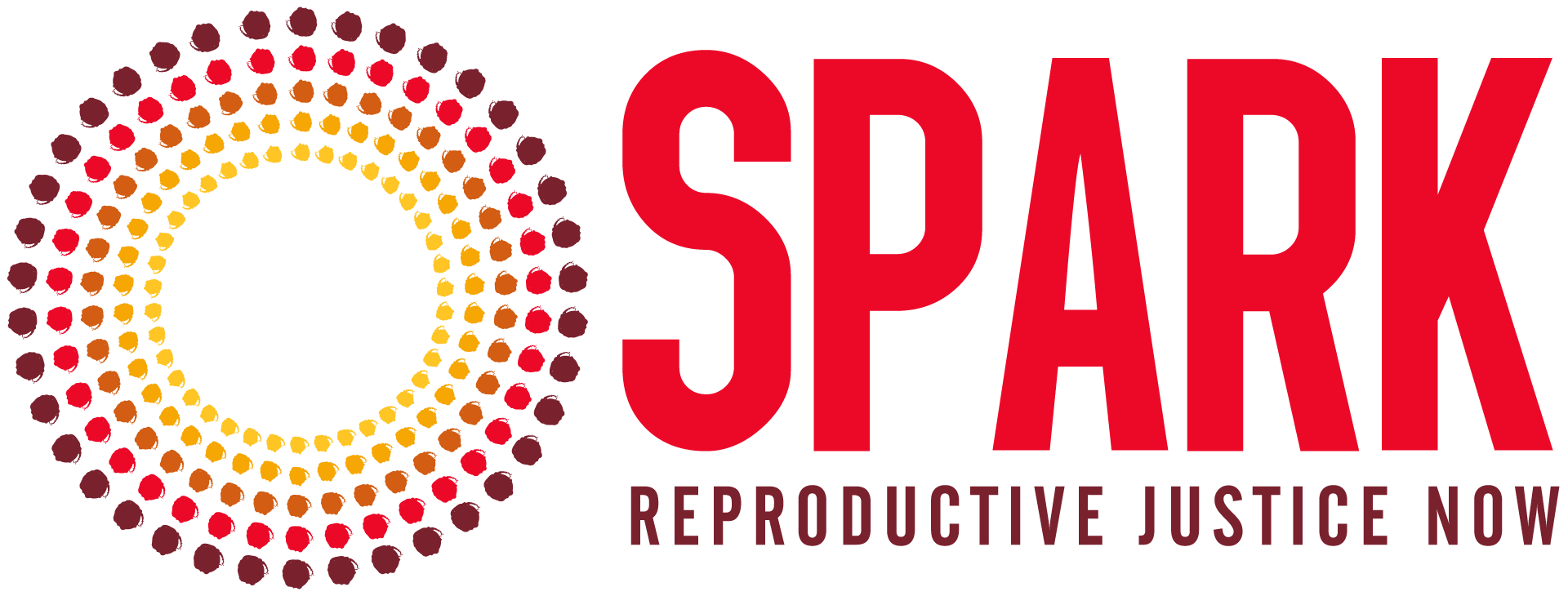2017 marks the 44th anniversary of the Roe v. Wade verdict and for the first podcast of the year, we talked to two individuals who have had abortions about their experiences and their thoughts on how a repeal of this landmark decision could affect the future of reproductive justice.
There’s no denying that this latest attack on Roe v. Wade is part of an ongoing effort to disempower women and further criminalize those most marginalized in society with restrictive laws. Following the podcast, SPARK facilitated a Facebook Live chat with Kwajelyn Jackson of Feminist Women’s Health Center on how a repeal of the Roe v. Wade decision would affect women’s health and the fight for reproductive justice as part of a national series with our partners from All Above All.

Unsurprisingly, our video chat was reported for an alleged community violation and taken off Facebook. This incident, though disappointing in its blind and unilateral dismissal, served to illuminate the biggest barrier to abortion access – stigma.

What can we do to protect our right to information during a Trump presidency where a woman’s right to choice is constantly under attack? In the face of such resistance, is there any value in creating spaces to have these conversations with members of our community?
In Our Own Voice: National Black Women’s Reproductive Justice Agenda (NBWRJA) commissioned PerryUndem Research/Communication to conduct a survey of Black adults in Georgia on the topic of women’s reproductive health and sex education programs, and contraception. The research shows that very large majorities of Black adults in Georgia support a woman’s right to make her own decision on abortion and access to affordable, respectful care is critical. Large majorities of both Black women and men agree we should trust Black women to make their own decisions on this issue based on their circumstances. Nearly all respondents agree that a woman’s ability to control whether and when she has children is an important part of financial stability for herself and her family. Most Black adults in Georgia also see contraception as part of basic health care and feel it should be included in health care coverage.
Armed with this data, we returned to our community and this time, took to the streets for a field day to hear what 30310 had to say about abortion access. Though not scientific, our casual survey of the West End Mall proved that though stigma exists and prevents some people from wanting to engage in a dialogue about the many factors that surround abortion access, there is a sizable number of allies and advocates who support women’s right to choose despite their own personal ethics and moral ideologies.
Key Findings
• A large majority of Black adults in Georgia (86 percent) agrees each woman should have the right to make her own decision on abortion, even if they may disagree with her reason. Similarly, 83 percent agree we should trust Black women to make personal decisions that are best for themselves and their families.
• More than half (68 percent) do not want the Supreme Court to overturn Roe v. Wade including 64 percent of those who self-identify as very religious.
• Nearly all Black adults in Georgia (96 percent) believe a woman’s ability to control whether or when she has children is an important part of financial stability for herself and her family.
• When it comes to access to abortion care, majorities want care to be directed by a doctor (94 percent), affordable (83 percent), respectful of a woman’s decision (78 percent), and in their community (77 percent).
• Close to two-thirds (64 percent) say they pay attention to a political candidate’s view on a woman’s right to get an abortion.
• For a majority of Black adults in Georgia, religious beliefs do not interfere with their views toward abortion. Seven in ten (69 percent) agree abortion should remain legal even if church leaders take a stance against abortion.
• In their personal lives, the vast majority (86 percent) would support a loved one who had an abortion, with 58 percent saying would give “a lot of” support.
• A large majority of respondents (85 percent) considers birth control part of basic women’s health care coverage. Similarly, (83 percent) agree every woman should have access to the full range of pregnancy care including abortion. A large majority (90 percent) agrees a woman should be able to get birth control even if her boss disagrees.
• Majorities of Black adults also want comprehensive sex education in schools, including topics such as birth control (92 percent), pregnancy options including abortion (85 percent), gender identity (68 percent), and sexual orientation (67 percent).
• Eight in ten (81 percent) would take their own teenager to get birth control if they needed it; 57 percent say they would definitely take them.
What are your thoughts on abortion access and a woman’s right to choice? Tweet us your thoughts using the hashtag #RJmeans.
